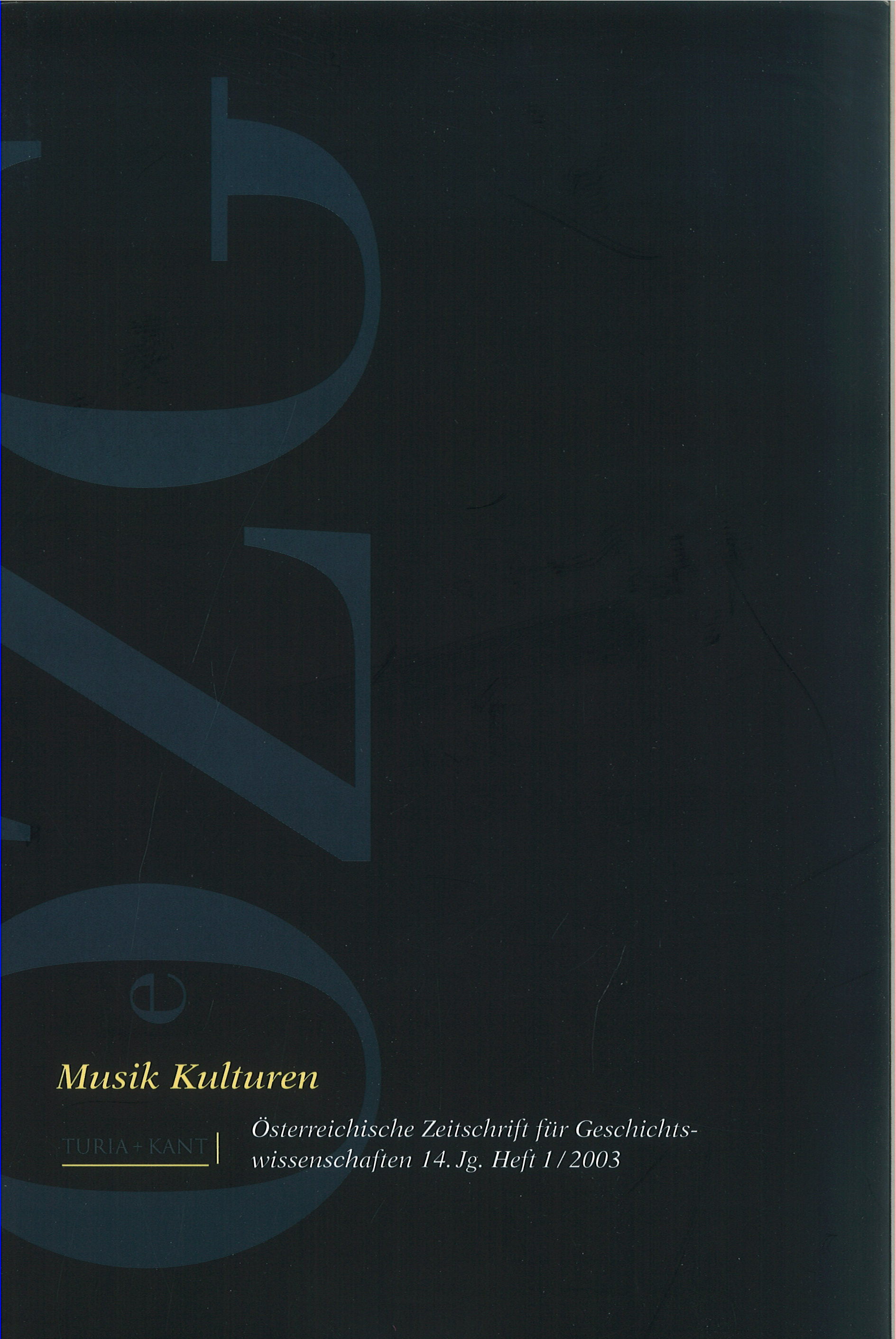Komponiertes Leben
Musikalische Kommunikation im soziokulturellen Kontext
DOI:
https://doi.org/10.25365/oezg-2003-14-1-2Abstract
Using a range of sources, including letters, reports, biographies and musical compo-sitions, the author analyses changing musical and cultural structures within their sociological context. In addition, the article demonstrates how musical production constitutes an ambiguous kind of cultural practice, which involves ehe composition, interpretation and adoption of musical forms by different social actors. Their actions are influenced both by communication wich one another and by societal circumstances. Mozart's piano concert KV 271 provides an example of the socio-cultural changes taking place in the late 18 century, above all the increasing permeability of social classes. In the early 19th century, the waltz became a new cultural trope, with conservative commentators viewing it as sexually permissive and a danger to the social order. The emergence of expressionism in music in the early 20 century represented a much more radical kind of change. The twelve-tone composers of the »Second Viennese School « (Schönberg, Berg et al.) set themselves free from the traditional rules of harmony, rhythm, and cadences, linking their new compositional techniques directly to the feelings they wanted to express. The vociferous protests by large sections of the general public indicated that this did indeed constitute a revolution in musical practice.


